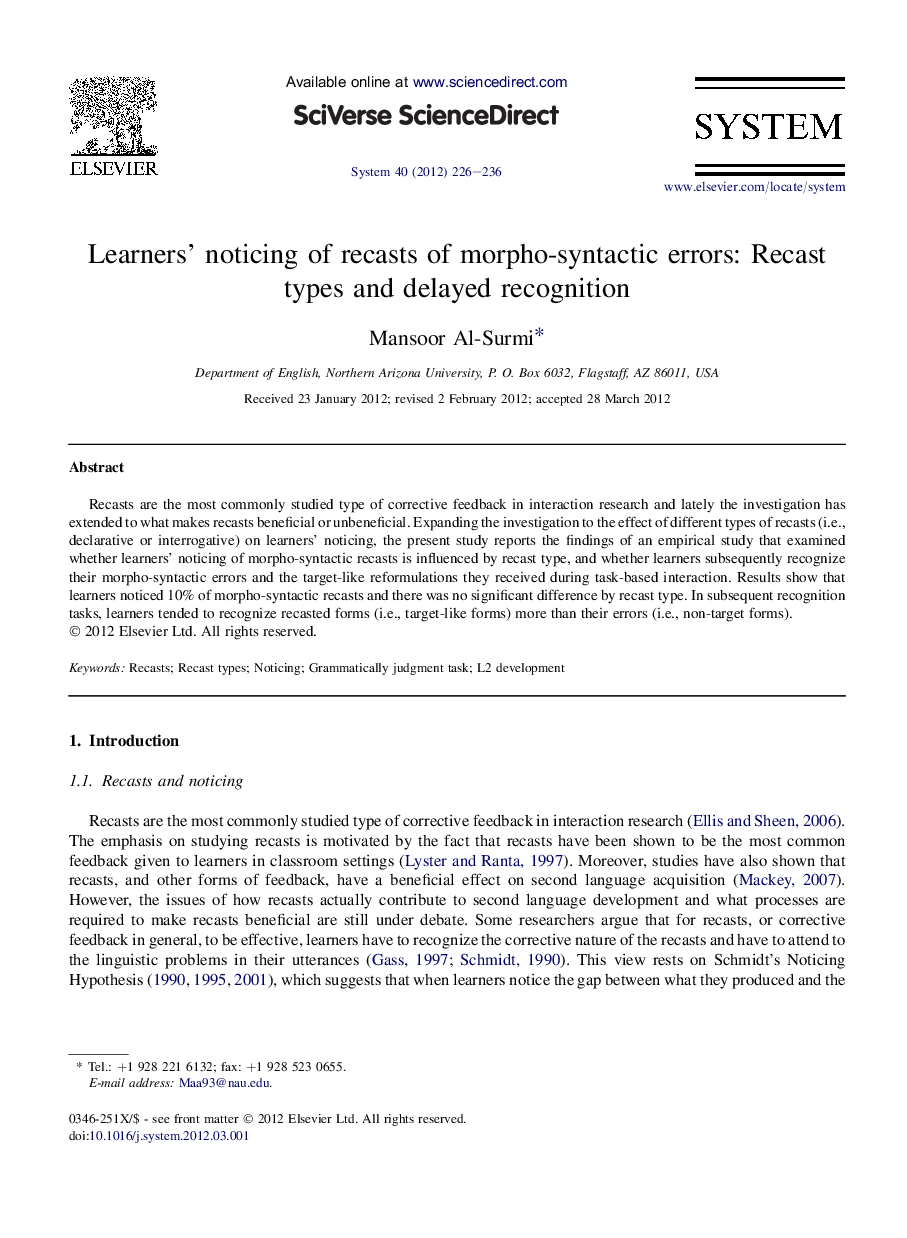| Article ID | Journal | Published Year | Pages | File Type |
|---|---|---|---|---|
| 373519 | System | 2012 | 11 Pages |
Recasts are the most commonly studied type of corrective feedback in interaction research and lately the investigation has extended to what makes recasts beneficial or unbeneficial. Expanding the investigation to the effect of different types of recasts (i.e., declarative or interrogative) on learners' noticing, the present study reports the findings of an empirical study that examined whether learners' noticing of morpho-syntactic recasts is influenced by recast type, and whether learners subsequently recognize their morpho-syntactic errors and the target-like reformulations they received during task-based interaction. Results show that learners noticed 10% of morpho-syntactic recasts and there was no significant difference by recast type. In subsequent recognition tasks, learners tended to recognize recasted forms (i.e., target-like forms) more than their errors (i.e., non-target forms).
